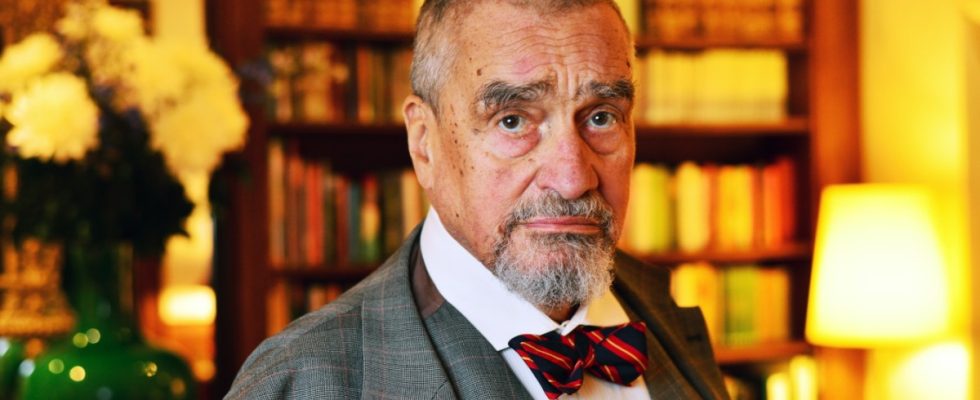A year ago, Karel Schwarzenberg sat in his apartment on Schwarzenbergplatz in the Schwarzenbergpalais in Vienna and thought out loud about the world situation while simultaneously eating breakfast, reading the newspaper, making a phone call and planning his day; Although he was already 84 years old at the time and had severe health problems, he was a classic multitasker. In interviews, in politics, in life.
Many politicians in Western Europe, he said at the time – six months after the Russian attack on Ukraine, eight years after the annexation of Crimea and the infiltration of Russian troops into the Donbass – were calling for a compromise. They wanted Ukraine to give up occupied territories; But that would be tantamount to a betrayal of all people who fought for their freedom. According to Schwarzenberg, such victims have occurred again and again throughout history. “The Munich Agreement in 1938 was such an example. But the power of evil is underestimated.” It’s not the case that if you give something to Putin, there will be calm. “He’ll always get more.”
These few sentences contain a lot of what characterized the head of a centuries-old Franconian-Austrian-Bohemian noble family: deep humanity, historical perspective, analytical mind and lack of understanding for everyone who was prepared to come to terms with despots out of cowardice or convenience.
At the Munich Security Conference in 2011, when he took the podium directly after Vladimir Putin, he used sharp words to distance himself from the way the Russian president was being courted in the West – and demonstrated another character trait, his biting sense of humor: “I thank that President of the Russian Federation, Vladimir Vladimirovich Putin, for his speech,” said Schwarzenberg, who was then Foreign Minister of the Czech Republic. Putin had just “confirmed what we already knew: how necessary it was for us to join NATO.”
“The Prince” as a statesman
Schwarzenberg died on Sunday night in a Vienna hospital at the age of 85, and it can be assumed that his funeral will be a state ceremony. Because “the Prince”, as friends and admirers called him, was a statesman without, apart from the Czech Foreign Ministry, holding high state positions. As chairman of the liberal party TOP 09, he unsuccessfully ran for president in the Czech Republic in 2013.
But the politician, farmer and entrepreneur, who, as head of the family, also managed the extensive family holdings in the Czech Republic, Austria and Germany since 1979, was a formative figure in those historical years that led to the democratic change in the rigid systems of Eastern Europe and for a long time afterwards; He remained in demand as an advisor to European and Eastern European politicians until the end because he supported the eastward expansion of the EU with great sympathy, while warning of the dangers of the rise of nationalists and right-wing populists.
He was a close friend of Havel
In 1984, Schwarzenberg took over the chairmanship of the Helsinki Federation for Human Rights based in Vienna and campaigned for human rights to be respected in the Soviet cosmos and for opposition figures not to be incarcerated. He met the poet and dissident Václav Havel and founded a documentation center for independent Czechoslovak literature, for samizdat texts (self-published works published without censorship) in the Eastern Bloc. And when the Velvet Revolution swept through what was then Czechoslovakia in 1989, he was at his friend Havel’s side when he led the resistance and was ultimately elected president.
Havel makes the man, who remained a Czech citizen despite his family’s emigration from post-war Prague to Austria, his office boss. The journalist Hans Rauscher, a close friend of Schwarzenberg, remembers in default how warmly Havel spoke about his sometimes quirky, sometimes gruff companion: “Although he was forced to spend most of his life outside of his homeland, he always remained a patriot. Although he was born an aristocrat, he is a convinced one Democrat and fighter for human rights.”
His complicated private life, which was marked by numerous upheavals and some reconciliations, recently found its way into a film by his daughter Lila, “My Father, the Prince”, which can currently be seen on 3sat. Now the entire, large Schwarzenberg family will come to the funeral, which includes not only his relatives, but also numerous Europeans who owe so much to the liberal-conservative.

